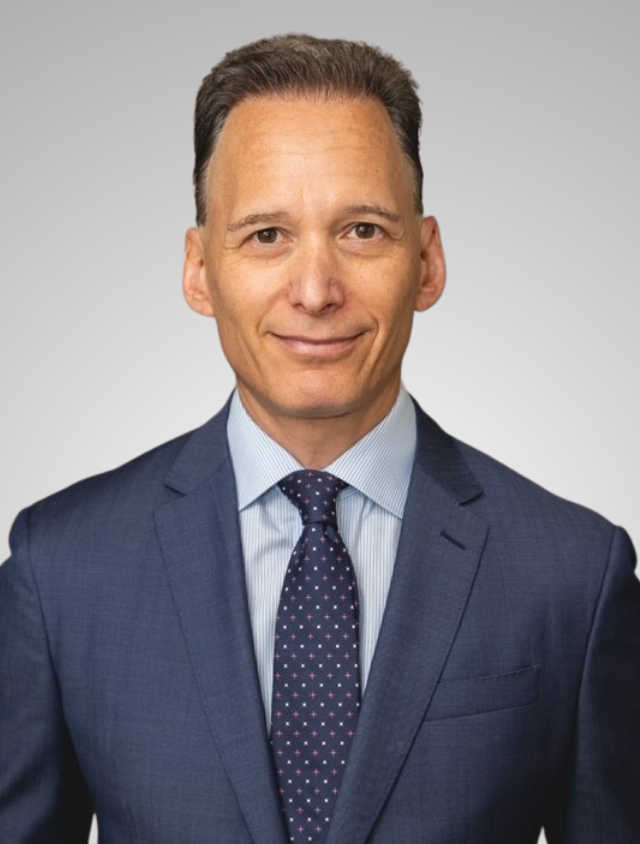Esophageal dysphagia is a term used to describe difficulty swallowing. It can affect people of all ages and may be caused by a variety of underlying conditions. Dysphagia can be a serious condition, as it can lead to malnutrition and dehydration if left untreated.

Esophageal Dysphagia Overview

What is Esophageal Dysphagia
Symptoms
Symptoms of esophageal dysphagia can include:
- Difficulty swallowing
- Coughing or choking when swallowing
- Pain when swallowing
- Feeling of food or liquids getting stuck in the throat
- Weight loss
Causes
Esophageal dysphagia can be caused by a variety of underlying conditions, including:
- Neurological disorders: Dysphagia can be caused by neurological disorders, such as stroke, brain injury, or degenerative conditions like multiple sclerosis or Parkinson's disease. These conditions can affect the muscles and nerves involved in swallowing, leading to difficulty swallowing.
- Structural abnormalities of the throat or esophagus: Dysphagia can be caused by structural abnormalities in the throat or esophagus, such as a tumor, scar tissue, or a narrowing of the esophagus.
- Medications: Some medications, such as antidepressants and antihistamines, can cause dry mouth, which can lead to difficulty swallowing.
- Acid reflux: Acid reflux, also known as gastroesophageal reflux disease (GERD), can cause inflammation and irritation of the esophagus, leading to difficulty swallowing.
- Swallowing disorders: Dysphagia can also be caused by swallowing disorders, such as achalasia, which is a condition that affects the muscles of the esophagus and makes it difficult to swallow.
Risk Factors
Esophageal dysphagia is more common in older adults, and the risk of developing dysphagia increases with age. There are several other factors that may increase the risk of developing dysphagia, including neurological disorders, structural abnormalities, and certain medical conditions.
Diagnosing Esophageal Dysphagia
Because dysphagia can make it difficult or impossible to get proper nutrition, diagnosis and treatment are vital. In addition, the risk of choking is greatly increased because a person with dysphagia has difficulty moving food from the mouth to the stomach. If someone has food or liquid lodged in their airway and they cannot remove it, the risk of aspiration pneumonia increases as well.
To diagnose dysphagia, your healthcare provider will ask about your medical history and will conduct a physical examination. They may also ask you questions about the location and severity of your difficulty swallowing, as well as any other symptoms you are experiencing. Your healthcare provider may also order additional tests to help diagnose dysphagia, such as:
- X-ray: An X-ray of the throat and esophagus can help your healthcare provider see any abnormalities or blockages in these areas.
- Endoscopy: An endoscopy is a procedure that involves inserting a thin, flexible tube with a light and camera on the end through the mouth and into the throat and esophagus. This allows your healthcare provider to see the inside of these structures and look for any abnormalities or blockages.
- Barium swallow: During a barium swallow, you will be asked to drink a liquid that contains a substance called barium. The barium will coat the inside of your throat and esophagus and show up on an X-ray, allowing your healthcare provider to see any abnormalities or blockages.
- Manometry: Manometry is a test that measures the muscle contractions in the esophagus as you swallow. It can help your healthcare provider determine if there are any problems with the muscles involved in swallowing.
Treatments for Dysphagia
Treatment for dysphagia may involve a combination of medication, dietary changes, and therapy. Some potential treatment options for dysphagia include:
Conservative Treatments
- Medication: Depending on the cause of the dysphagia, a healthcare provider may prescribe medication to help improve muscle function or reduce inflammation in the throat or esophagus.
- Dietary changes: Making changes to the consistency of food and liquids can help a person with dysphagia swallow more easily. For example, a person may need to avoid certain textures or switch to a pureed diet.
- Speech therapy: A speech therapist can teach a person with dysphagia techniques to help them swallow more effectively, such as using different head and neck positions or using specific muscles in the mouth and throat.
- Swallowing exercises: A therapist or healthcare provider may recommend specific exercises to help strengthen the muscles used for swallowing.
Surgery
Surgery may be an option for individuals with dysphagia in cases where other treatments are not effective or when dysphagia is caused by a structural abnormality that can be corrected surgically. Some examples of surgeries that may be used to treat dysphagia include:
- Esophageal dilation: This procedure involves inserting a balloon or other device through the mouth and into the esophagus to stretch and widen the esophagus. This can help relieve a blockage or narrow area that is causing dysphagia.
- Fundoplication: This surgery involves wrapping part of the stomach around the lower esophagus to help prevent acid reflux and reduce the risk of dysphagia.
- Esophageal resection: In this procedure, a surgeon removes a section of the esophagus that is damaged or diseased. The remaining ends of the esophagus are then reconnected. This surgery is typically only used in severe cases of dysphagia caused by esophageal cancer or other serious conditions.
- Stent placement: A stent is a small, metal mesh tube that can be inserted through the mouth and into the esophagus to keep the esophagus open and help prevent dysphagia.
Nerve Surgery for Esophageal Dysphagia
Nerve-related surgery may be used in cases where the dysphagia is caused by a neurological disorder or injury that affects the nerves responsible for swallowing. Generally, the goal of nerve surgery is to repair or reroute the nerves contributing to dysphagia to help improve muscle function and swallowing.
- Hypoglossal nerve surgery: addresses the hypoglossal nerve, which controls the muscles of the tongue.
- Pharyngeal plexus surgery: addresses the pharyngeal plexus, a group of nerves that control the muscles of the pharynx, or throat.
- Recurrent laryngeal nerve surgery: addresses the recurrent laryngeal nerve, which controls the muscles of the larynx, or voice box.
Our Doctors
Patient Stories
See how patients just like you have improved their swallowing with care at The Institute for Advanced Reconstruction.
Locations
Insurance Information
The Institute for Advanced Reconstruction participates in a wide range of insurance plans, including those listed below. However, each physician has their own accepted insurance and hospital affiliations. Before scheduling an appointment, please contact your insurance carrier to confirm that your provider is in-network.
If we are not an in-network provider, our friendly insurance specialists will help you find the most coverage available for your treatment.
- Horizon Blue Cross Blue Shield of New Jersey
- Medicare
- Railroad Medicare
- Aetna
- Cigna
- United Healthcare
- Oxford (Freedom, Liberty)
- MagnaCare
Patient Resources
Learn more about what to expect when it comes to surgical procedures and treatments at the Institute for Advanced Reconstruction by visiting our patient resource page.
Am I a candidate for dysphagia treatment?
In some cases, dysphagia can be progressive. To find out if you qualify for advanced treatment for dysphagia, schedule a consultation today and work with a specialist to explore your treatment options.

